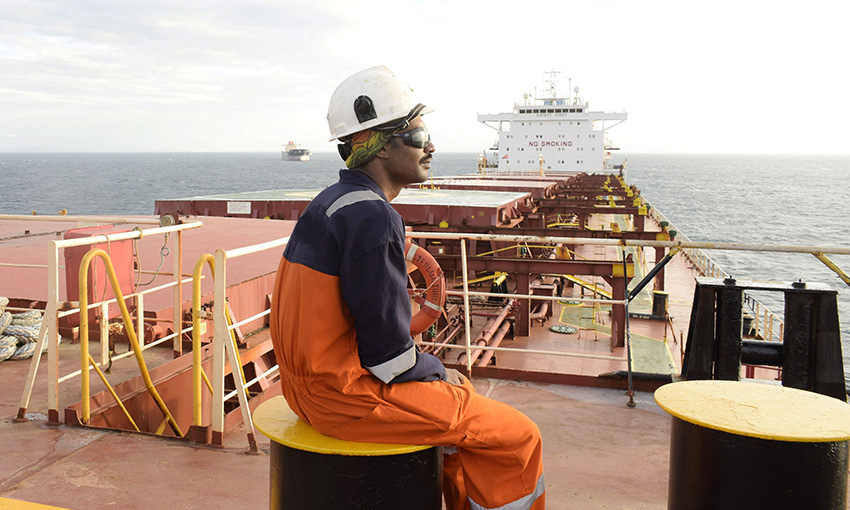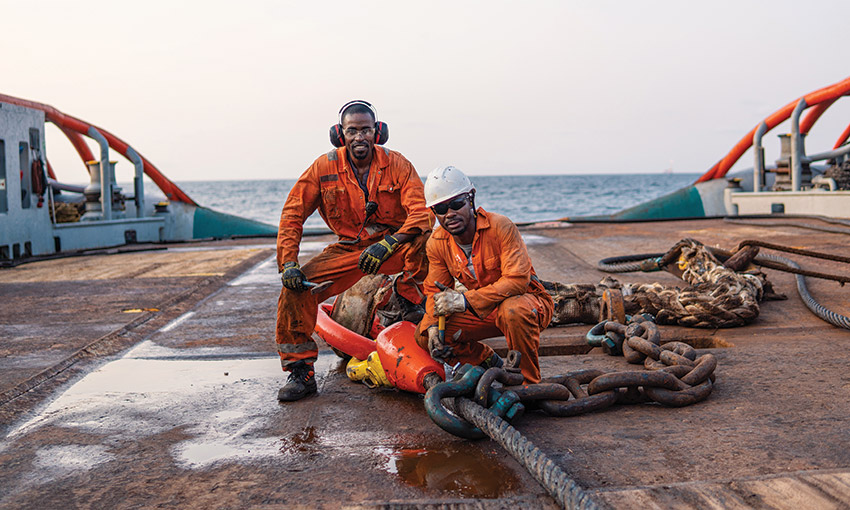THE latest data from the Neptune Declaration Crew Change Indicator suggests the crew change situation is again deteriorating.
According to the indicator, the number of seafarers onboard vessels beyond the expiry of their contracts has risen from 3.7% last month to 4.2% in February.
Though a modest increase, this is the first time since September last year the indicator has recorded an upward trend.
However, the February figures are the second lowest recorded since the indicator was first published in May 2021.
The increase aligns with last month’s prediction that omicron would derail crew change progress, ship managers now reporting challenges that confirm the impacts of the new variant.
Large numbers of seafarers are reportedly falling ill due to fresh waves of omicron infections in several major crewing nations.
Crew changes have consequently been postponed, and some crew shortages are now being reported.
Authorities have again tightened restrictions in the face of the increase in positive cases, which has further complicated crew transfer.
Flight cancellations have also delayed the repatriations of seafarers, with severe challenges being noted in China.
The indicator highlighted “positive news” from Australia, namely the easing of quarantine requirements in some ports, which has increased the ease and flexibility of local crew transfers.
Managing director, head of institutional strategy and development at the Global Maritime Forum Kasper Søgaard warned against responding to the omicron variant with new restrictions.
“Though the observed increase in the number of seafarers onboard beyond the expiry of their contracts does not confirm our worst fears over the impact of omicron, reports by ship managers describe continued challenges in carrying out crew changes,” he said.
“We must work together to guarantee the health of our seafarers and make sure we do not slide into a situation of renewed high restrictions on crew changes.”
The number of seafarers onboard vessels for more than 11 months has remained stable since last month, at 0.4%.
The Neptune Indicator also recorded a 7% increase in seafarer vaccinations, from 59.8% in January to 66.8% this month, reflecting an increase in access to first and second doses.
Despite the positive progress, ship managers are reporting vaccine hesitancy among some seafarers.
The indicator also noted issues with access to booster shots, as several countries are changing travel rules to require a booster or vaccine certificate no older than a specific date.
Difficulties relating to vaccine recognition also persist, as many countries only accept subsets of vaccines approved by the World Health Organization for travelling seafarers.
There are also reports that some shipowners and charterers require vessels to be manned by vaccinated crew only.
According to the report, this disadvantages crew from areas where access to vaccine remains limited.





